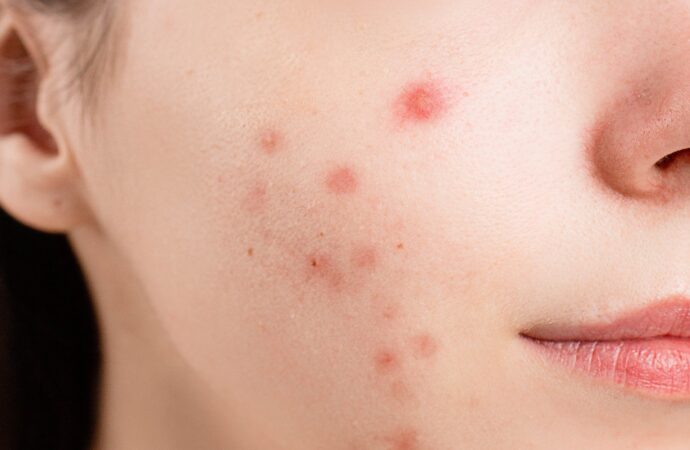Testosterone is a male sex hormone produced in a woman’s ovaries mostly in small quantities. Testosterone scientifically belongs to the group of hormones commonly known as androgens. Check www.healthywomen.org for more information. Most people believe that it is a male sex hormone but this is not always the case. The fact remains that males have more
Testosterone is a male sex hormone produced in a woman’s ovaries mostly in small quantities. Testosterone scientifically belongs to the group of hormones commonly known as androgens. Check www.healthywomen.org for more information. Most people believe that it is a male sex hormone but this is not always the case. The fact remains that males have more testosterone as compared to women. This is because both the female adrenal glands and ovaries produce small amounts of this hormone. Most studies across the globe reveal that high levels of testosterone may trigger different health problems mostly in women.
Causes of high testosterone in women
Most diseases associated with hormonal disorders can cause hormonal changes in women.
Some of the common causes of high testosterone levels in women include:
Hirsutism
Hirsutism is a hormonal disorder in women which results in the growth of unwanted hair especially around the neck, at the back, and even in other cases around the chest. The rate of hair growth in these parts of the body the influenced by genes. This health condition in most instances is caused by an imbalance of the androgen hormones.
Congenital adrenal hyperplasia
Congenital adrenal hyperplasia is a syndrome that affects the production of the body’s hormones. The hormones affected by this disorder are the adrenal glands. They end up overproducing androgen as required in the body. Some of the symptoms of this disease include severe acne, growth of pubic hair at an early age, infertility, and even masculine characteristic.
Polycystic ovary syndrome
Polycystic ovary syndrome is caused by the overproduction of androgen hormone in women. This disorder results in enlarged ovaries. The enlarged ovaries in many cases do not function properly as required in the body.
Stress
Stress can trigger the adrenal glands functioning. Stress also leads to insulin resistance hence increased cortisol and dehydroepiandrosterone (DHEA) production. This leads to the production of testosterone in high quantities.
Alcohol consumption
High consumption of alcohol by women can trigger high levels of testosterone hormone.
Insulin resistance
In the case of insulin resistance, the body’s tissues become resistant to insulin. Insulin is a hormone produced by the pancreas and its major role in the body is to control blood sugar. A high level of insulin causes the ovaries to produce excess testosterone. This situation interferes with follicle development and can sometimes inhibit ovulation.
Effects of high testosterone in women
A high level of testosterone affects women. High testosterone levels can result in
Infertility. Infertility in simple terms refers to the duration one has been trying to conceive unsuccessfully. It is scientifically proven that high testosterone in women can cause infertility. Women with high testosterone hormone find it challenging to conceive.
This is because anabolic steroids during pregnancy interfere with fetus development by initiating the development of male features in the female fetus and versa. High testosterone leads to infertility because ovulation rarely takes place.
Lack of menstruation
Both progesterone and testosterone is the major hormone that regulates the menstrual cycle. High testosterone can result in an absence. A high level of testosterone can stop the menstruation cycle since the ovulation process has already been interfered with.
Increase libido or sex drive
High testosterone increases libido thus increasing the intensity of orgasm. The combination of testosterone and estrogen can increase a woman’s sex drive. If a woman’s libido has a pattern it can be linked to the fluctuations of these hormones. The rise of testosterone causes an increase in cervical fluid. The increased density of the pelvis and the natural lubrication that is associated with menses contributes to feeling more sexually aroused.
Acne
Hormonal acne is associated with the rise of testosterone. A high level of testosterone in the bloodstream can cause acne. Hormonal birth control is the most recommended way to reduce these types of acne.
Hormonal balances
Testosterone takes part in balancing the hormones during the menstrual cycle by working alongside both progesterone and estrogen. Both the progesterone and estrogen hormone affects one’s mood and sometimes food cravings. One of the remedies to balance the moods is by use of testosterone therapy.
Excess hair growth
High testosterone can lead to excess hair growth in some of the body parts. These body parts include the neck, back, and even the chest on some people. This occurs when the receptors on these body parts are sensitive to any higher amount of testosterone. This eventually stimulates the growth of the hair at a faster rate than in any other part of the body.
Obesity
Testosterone plays a key role in the pathology of metabolic diseases. The low testosterone levels are mostly linked with high levels of fat mass and reduced lean in the women’s body. The burning of calories in the body due to increased levels of testosterone causes an increase in body mass or weight. One of the female conditions associated with weight gain due to high testosterone is premenstrual syndrome (PCOS).
PCOS is a common disorder affecting most women in many regions across the globe. Some of the symptoms of this disorder include bloating, carbohydrates, or even sugar cravings. This eventually increases body weight hence obesity. To avoid body gain due to PCOS, one should adopt a dietary change to take smaller meals and reduce the intake of salty snacks.
Avoidance of both alcohol and caffeine consumption is also another remedy to avoid body gain during PCOS. Frequent exercises can also be of help during this state. Failure to control obesity at an earlier stage can result in diabetes. The diabetes medication helps in regulating the amount of insulin in the body.
Before a specialist makes the diagnosis of high testosterone first he checks for depression, anxiety thyroid disease, chronic disease, and even transition to menopause to conclude.
Wrapping up
In conclusion, it is clear that high testosterone in women can cause a variety of unwanted symptoms if left untreated. Women should visit a doctor or even a gynecologist whenever they suspect any symptoms associated with high testosterone. This will facilitate early treatment to avoid worsening the condition.



















Leave a Comment
Your email address will not be published. Required fields are marked with *